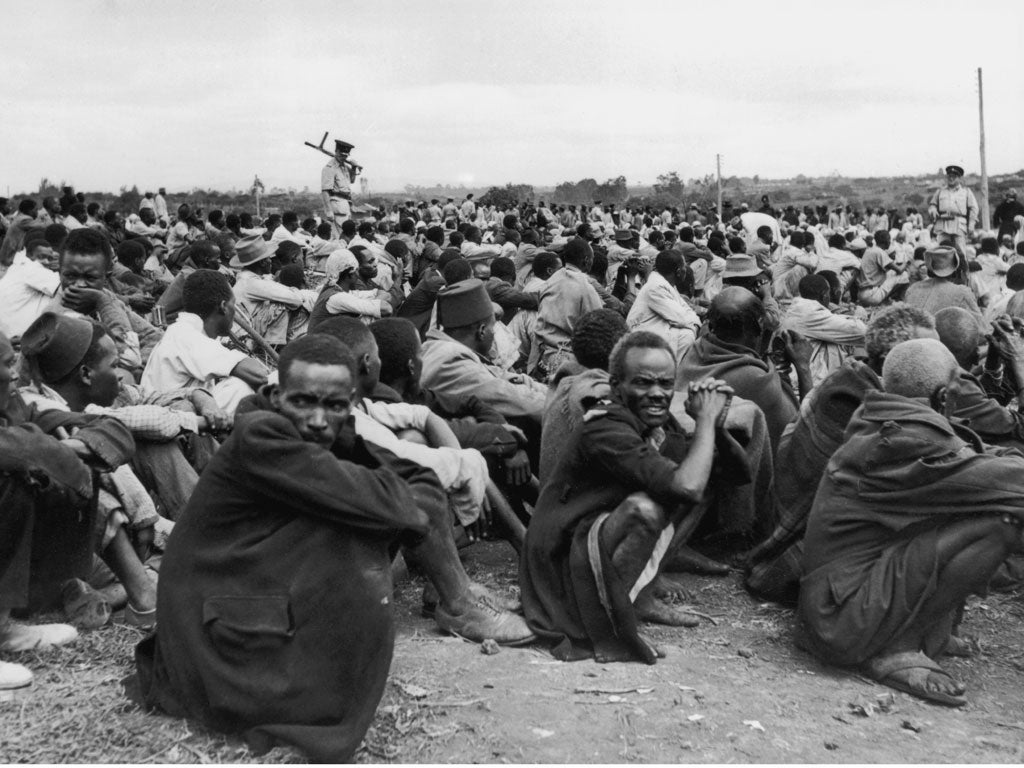Mau Mau veterans urge election boycott unless Britain pays back trillions in colonial reparations
An association is calling for Kenyans to boycott the 2017 election unless something is done

Victims of atrocities during British colonial rule in Kenya have called for a boycott of next year’s general election until billions of pounds of reparations are paid by the UK.
Veterans who fought against white settlers and the British Army during the fight for Kenya’s independence say they have never been compensated for the persecution they suffered.
In 2013, the British government agreed to pay out £20 million in reparations to a group of more than 5,000 survivors of the Mau Mau rebellion.
The agreement saw the then-Foreign Secretary William Hague recognise on behalf of the UK, for the first time, “that Kenyans were subject to torture and other forms of ill-treatment at the hands of the colonial administration”. “The British government sincerely regrets that these abuses took place,” he said.
And the UK also agreed to finance a memorial to the Mau Mau conflict which was unveiled in central Nairobi’s Uhuru Park in September 2015.
But for members of the Mau Mau Original lobby group, which represents veterans of the conflict, these measures do not go nearly far enough.
They have said they believe every Kenyan deserves a share of the reparations for the damage colonial rule did to the country.
Figures like the £20 million sum were calculated based on census data from the 1940s, they argue, and so do not reflect the fact that the country’s population is now much greater.
The group’s national chairman, Field Marshall Ngacha Karani, says the Kenyan government should be demanding 400 trillion shillings - or £4 trillion. That’s about £1 trillion more than Britain’s total annual GDP.
According to a report on Wednesday by Kenya’s Citizen TV, Mr Ngacha told a meeting of the Mau Mau Original that the group must travel throughout the country in order to mobilise Kenyans to boycott the election due to be held on 8 August 2017.
And he questioned why it was that successive Kenyan governments have failed to do more to pressurise Britain into giving more.
Mr Ngacha was not the only Mau Mau veteran to speak this week against his own government on the matter.
In an interview with Kenya's Standard newspaper, 90-year-old freedom fighter Faith Wanjiru Wachira recalled how she risked her life to help feed and clothe Mau Mau rebels deep inside the Mount Kenya forest.
She said that one year after independence, the new Kenyan government rounded up people like her living in areas worst-hit by the rebellion and rehomed them in cramped “temporary” holding grounds. The new administration of Jomo Kenyatta feared they could rise up again if they were unhappy with post-colonial rule.
More than 52 years later, she lives in that same 50-by-100 ft plot of land with her children, grandchildren and great-grandchildren. She told the Standard: “It pains me that I fought for land, but I ended up without any. I am hopeful that one day, the government will consider my struggle in ensuring that Kenya attained independence and reward me with land.”
The suppression of the Mau Mau rebellion remains one of the darkest episodes of Britain's imperial era.
It saw thousands of mainly ethnic Kikuyu rise up against British rule, fed up with the economic deprivation that came from being forced from their rich agricultural homelands north of Nairobi.
In an effort to divide and isolate rebels, London and the Kenyan authorities declared a state of emergency in 1952, rounding up more than a million Kikuyu into camps and “protected villages”. Most historians now see these as essentially concentration camps, designed to punish the ethnic group as a whole.
Though the 2013 settlement came out of court, another class action involving more than 8,000 additional claimants is still making its way through the British court system.
The High Court is being asked to rule on the claim for damages of around £200 million, though the British government is resisting the case, and the Kenyan government has declined to take up the matter on a government-to-government basis.
Join our commenting forum
Join thought-provoking conversations, follow other Independent readers and see their replies
Comments
Bookmark popover
Removed from bookmarks